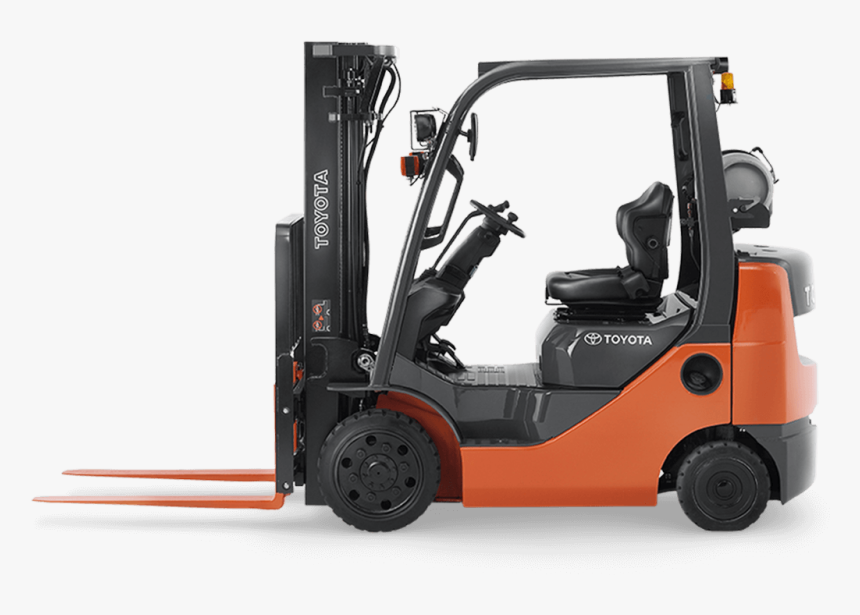Revive Your Lift: Essential Tips for Toyota Forklift Service and Repair
Revive Your Lift: Essential Tips for Toyota Forklift Service and Repair
Blog Article

For businesses that rely on heavy machinery, maintaining the efficiency of their equipment is paramount. Toyota forklifts are known for their reliability and performance, making them a popular choice in various industries. However, like any mechanical equipment, these forklifts require regular service and repair to ensure they operate at peak performance. Proper maintenance not only extends the life of the equipment but also enhances safety and productivity in the workplace.
In this article, we will explore essential tips for Toyota forklift service and repair. Whether you are a fleet manager, a technician, or a dedicated operator, understanding the best practices for maintenance and repair can save you time, money, and stress. From routine inspections to addressing common issues, these insights will help you revive your lift and keep your operations running smoothly.
Understanding Toyota Forklift Maintenance
Maintenance is crucial for the performance and longevity of Toyota forklifts. Regular service helps to identify and address potential issues before they escalate into costly repairs. Overlooking maintenance can lead to reduced efficiency and increased downtime, impacting your operations and productivity. By adhering to a consistent maintenance schedule, you can ensure that your forklift is always in optimal working condition.
Routine checks on key components such as the engine, transmission, and hydraulics should be performed to maintain operational safety. Toyota forklifts are designed with a range of advanced features to enhance efficiency, but these features require proper care to function effectively. Regular oil changes, filter replacements, and inspections of the electrical system can prevent malfunctions and enhance the reliability of your equipment.
Understanding the specific maintenance needs of your Toyota forklift model is essential. This may include consulting the owner’s manual for service intervals and recommended practices. By following guidelines set forth by Toyota, you not only prolong the lifespan of your forklift but also ensure compliance with safety standards, ultimately protecting your investment in the long run.
Common Service Issues and Solutions
One of the most common issues encountered with Toyota forklifts is the hydraulic system malfunction. This may manifest as sluggish lifting or leaks in the hydraulic fluid. To address this, it is essential to regularly inspect hydraulic lines and check fluid levels. If leaks are identified, they should be repaired, and any worn seals or hoses should be replaced. Additionally, ensuring that the hydraulic fluid is changed according to the manufacturer's recommendations will help maintain optimal performance.
Another frequent problem is related to battery maintenance. Forklift batteries often suffer from corrosion, especially around the terminals, which can impede functionality. To solve this, regularly check the battery terminals for signs of corrosion and clean them with a suitable solution. Keeping the battery charged and maintaining proper electrolyte levels will also help extend battery life and prevent premature failures. Remember to follow guidelines for safe battery handling during maintenance.
Finally, brake issues are also a notable concern in Toyota forklift service and repair. Users may notice a decrease in braking efficiency, which could be due to worn brake pads or low hydraulic fluid levels. It is crucial to monitor brake performance and address any issues immediately. Regularly inspecting the braking system, replacing worn components, and ensuring fluid levels are adequate can significantly enhance safety and prolong the lifespan of the forklift.
Tips for Effective Repair
When performing service and repair on Toyota forklifts, it is crucial to start with a thorough inspection. This allows you to identify any existing issues or potential problems before they escalate. Check the hydraulic systems, brakes, and engine components for wear or damage. Regular attention to these areas can help you maintain optimal performance and avoid costly repairs down the road.
Using genuine Toyota parts for replacements is essential for ensuring the longevity and efficiency of your forklift. Original equipment manufacturer (OEM) parts are designed specifically for Toyota forklifts, providing the best fit and functionality. Avoiding generic or aftermarket parts may save money initially, but it can lead to more significant issues and expenses over time.
Additionally, follow the manufacturer's service schedule meticulously. Regular maintenance helps to catch issues early and keeps the forklift running smoothly. This includes oil changes, filter replacements, and routine checks of battery health and tire wear. Keeping up with these services enhances the overall reliability of the forklift and extends its operational life.
When to Seek Professional Help
Knowing when to seek professional help for your Toyota forklift service and repair is crucial to maintaining its performance and safety. If you notice persistent issues such as unusual noises, decreased lifting power, or warning lights on the control panel, it is a clear indication that professional attention is required. Ignoring these signs can lead to more severe damage and increased repair costs down the line.
Toyota Forklift Service Manual PDF Download
Another important factor to consider is the age of your forklift. Older models may require specialized knowledge for repairs, as parts may be harder to find and techniques may differ from newer designs. Regular maintenance schedules often become more critical as machinery ages, making it essential to consult with a qualified technician if you suspect that your forklift needs more than basic servicing.
Additionally, if you lack the experience or confidence to handle repairs, it is wise to reach out to a professional. Attempting to fix complex issues without the necessary skills can not only worsen the problem but also pose safety risks to you and your team. Ensure your forklift operates efficiently and safely by relying on trained professionals for service and repair needs.
Report this page